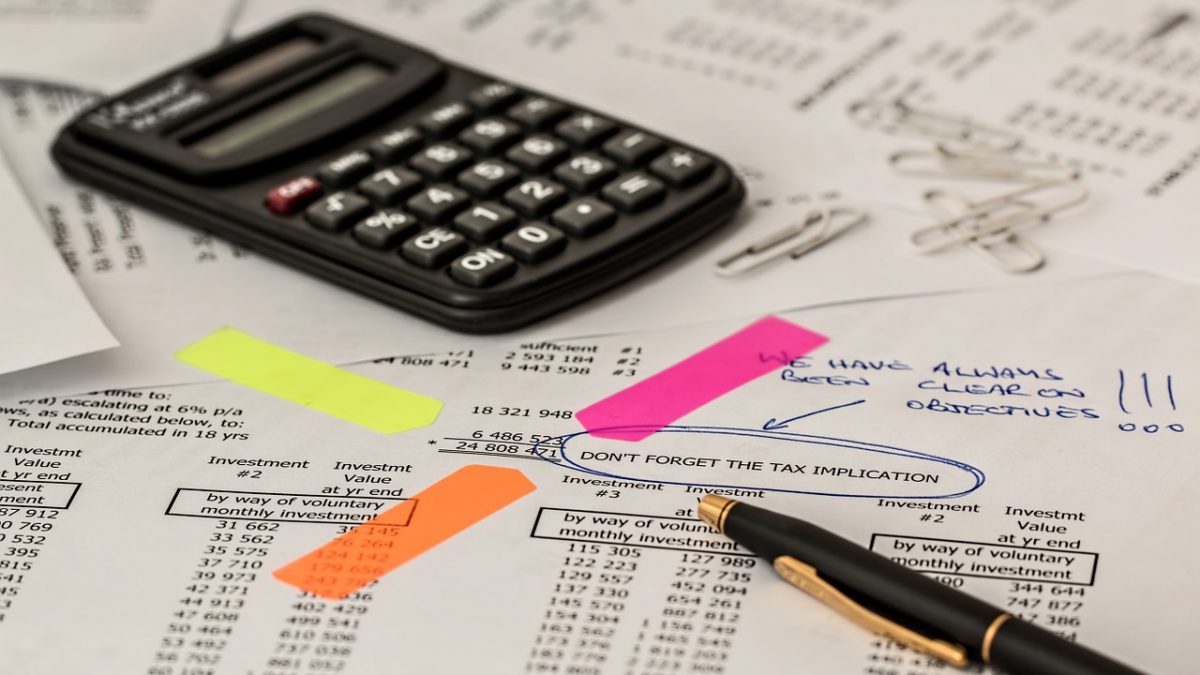
Clear the Lobby: What laws are MPs voting on this week? – w/c 1st April
April 1, 2019
Your Weekly Commercial Awareness Update – w/c 1st April
April 7, 2019Buying physical gold and silver has never been easier, with the number of online vendors, high street providers and banks still eager to provide the assets buyers are looking for.
But, perhaps now more than ever buyers need to exercise caution and “do their research” before making an investment. Here, we investigate four UK taxes – Capital Gains Tax (CGT), Valued Added Tax (VAT), Inheritance Tax and Income Tax in relation to purchases of physical forms of gold and silver.
Article Assumptions
With an article of this type it’s important to state some “upfront” assumptions, so as to set the expectations of readers:
- Physical gold and silver – it’s assumed that physical gold and silver is being bought (e.g. coins and bars) rather than paper-based forms of gold and silver investments such as ETFs, mining shares, etc.
- UK emphasis – whilst non-UK readers may gain some benefits from this article, it is written for the UK market with an emphasis on UK taxation implications
Capital Gains Tax
Capital Gains Tax (often abbreviated to CGT) is a personal form of taxation. CGT arises when assets are sold which have increased in value. There are a large number of asset classes, which are covered, some examples are second homes, stocks and shares, antiques and coins.
CGT personal allowance
Every individual has an annual personal CGT allowance. Gains below and up to the allowance are exempt from CGT, any gains above the allowance will be taxable at the individuals prevailing taxation rate. The 2018/2019 allowance for CGT for “Individuals, personal representatives and trustees for disabled people” is £11,700, click here for rates information.
Gold and silver coin purchases and CGT
When reading through HMRC’s Capital Gains Manual, it can be seen that coins, which are UK legal tender at their time of acquisition or disposal are exempt from Capital Gains Tax.
This is because sterling is not an included form of asset for CGT calculation purposes. Examples of exempt coins would be (but are not limited to):
- Gold and silver Sovereign coins from 1837 (Queen Victoria reign and onwards)
- Britannia gold and silver coins
- Royal Mint Queens Beast series
- Royal Mint Lunar series
The denomination value is all important on a coin and shows the legal value of a coin, for example, the Britannia below has a value of £100.
All non-UK coins are not currency and are classed as “chargeable assets” and are subject to Capital Gains Tax on any profits, these would include as examples – South African Krugerrands, American Eagles, Canadian Maple Leaf coins, etc.
For further information, click here to visit the HMRC page about Capital Gains Tax.
Gold and silver bars purchases and CGT
Gold and silver bars purchased are not legal tender, they have no denomination value and are therefore potentially subject to CGT.
Important considerations about CGT for gold and silver purchases:
- Threshold – even though bars aren’t exempt, CGT is only payable for gains made above the annual threshold (currently £11,700)
- Sell across years – as the allowance is annual on the 5th April each year, potentially an owner could sell close together and use two years allowances, e.g. sell half of the ownership on 1st April and the other half on 10th April. This would reduce CGT exposure as the sale is spread over two years and £23,400 (2 x £11,700) of allowances would be available. This strengthens the case for buying small-medium bars, which are more divisible and less expensive (e.g. a 1KG gold bar currently sells for around £33,000)
Value Added Tax (VAT)
VAT is a type of consumption tax and is a mandatory tax for all member states of the Economic Union (EU). VAT is applied to a broad range of purchases of goods, services and other taxable supplies. Businesses ultimately pay VAT to HMRC, but it’s ultimately the consumer who pays at the source of the purchase. VAT is, therefore, an indirect tax on purchases. Rates vary but the current rate at the time of writing was 20%.
VAT on gold purchases
When buying gold, it is vital to buy gold, which is classed as “investment gold”. Since 1st January 2000 following EC Council Directive 98/80 EC there is no VAT payable on “investment gold”. This directive harmonised UK law with the wider EU.
This type of gold can be safely bought without VAT implication and effectively saves 20% by buying this form of gold.
The HRMC states that “investment gold” can be bought without the addition of VAT. Investment gold can be defined as:
- Gold bars or wafers with a purity of at least 995/1000 (also called 0.995 purity), which are supplied in weights acceptable to bullion markets
- Gold coins which were minted after 1800 that have the following characteristics:
- purity is at least 900/100 (or 0.900 purity) and above
- the coins have been official legal tender in their country of origin
- the coin is not usually sold at a price which exceeds 180% of the open market value of the gold contained within the coin
- An investment gold coin as specified in VAT Notice 701/21A
VAT on silver purchases
As gold enjoys a VAT free status for “investment gold” purchases, many investors wrongly assume this will be the case for silver and other precious metals. There are two scenarios, which massively impact whether VAT is charged on silver purchases:
- Silver, which is bought and delivered to the customer’s address is VAT chargeable
- Silver, which is bought and stored in (non-customer-owned), non-UK storage facilities, will not attract VAT
Purchases of silver in the UK when delivered to a buyer are not exempt from VAT and therefore the VAT becomes payable. This does somewhat reduce the appeal of silver as purchases are already 20% more expensive than gold from its base purchase point (as the 20% can’t be recovered by a private buyer upon sale).
This doesn’t necessarily mean that silver isn’t worth investing in, investors need to look at the investment fundamentals including VAT before making a considered purchase.
Silver buyers opting to buy and store their silver in continental Europe, e.g. in locations such as Switzerland or Germany will not be charged VAT. If buyers subsequently choose to have their investment delivered the VAT would then become payable.
Silver coins and bars can be bought for delivery VAT free, but buyers are especially recommended to seek the advice of an Accountant and/or Financial Advisor before buying “VAT-free silver”. Physical Gold Ltd are an example of a VAT-free silver service provider.
Inheritance Tax
Inheritance Tax is a form of personal taxation made on the estate of a deceased individual. The estate will be the sum of assets from property, cash/bank accounts as well as worldly possessions, which include gold and silver.
Inheritance Tax allowances
For most people, Inheritance Tax is not payable as the allowances are quite high. As at February 2019 the Inheritance Tax rates were:
- Inheritance Tax allowance – £325,000
- Extra allowance if home gifted to children – £125,000
N.B. No Inheritance Tax is payable on estates fully left to a spouse, civil partner, charity or a community amateur sports club.
So, potentially any estates above £325,000 or £450,000, as shown above, will incur Inheritance Tax with gold and silver at their current market valuation being included in the estate as “worldly possessions”.
Reducing Inheritance Tax
Individuals wishing to reduce Inheritance Tax can gift their assets away. Assets gifted seven or more years before death will not attract Inheritance Tax. Therefore, all gifted gold and silver purchased:
- Seven or more years old will not incur Inheritance Tax
- Up to seven years ago and for estates below the threshold level will not incur Inheritance Tax
- Up to seven years ago and for estates with a valuation above the threshold level, can expect to incur Inheritance Tax
Income Tax
Income Tax is a form of tax which is personal in nature. The tax paid is based on the amount of income the individual earns less their allowance, with a number of other adjustments too.
As gold and silver are non-earning assets, they don’t earn any income. Investors own gold and silver usually as a “safe haven” form of investment with the aim of medium-long term investment capital gains. In the interim, there is no form of dividend or income as there would be shares or government bonds.
Therefore, income tax is irrelevant to ownership of gold and silver for both coins and bars.
Professional Disclaimer
The content above was accurate at the time of writing, which was in February 2019. It includes some opinion and although researched is provided for information purposes only.
We would always recommend you conduct your own research and investment advice before investing in gold, silver and other precious metals. It is highly advisable to seek the services of a licenced Financial Advisor before making an investment.
Suitably armed, is suitably informed
We trust you have found this article informative and a useful introduction. Buying gold and silver can make for an interesting and rewarding form of investment. Always, do your homework though and buy with tax-efficiency in mind – after all it’s an investment and you want to realise the maximum amount of profit that is possible.
Check this site for certification of exams (https://www.examlabs.com/)
Image Credits: Digital Money World,Stux,Physical Gold, Wuestenigel and Alpha Stock Images





